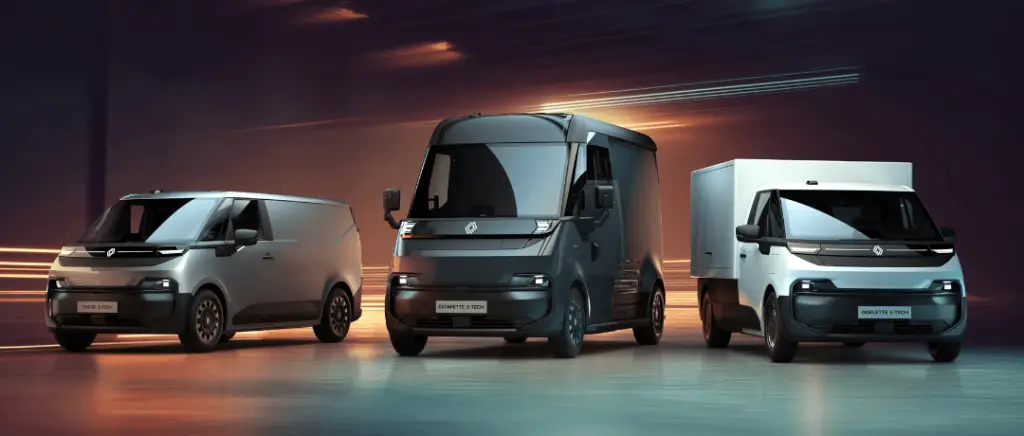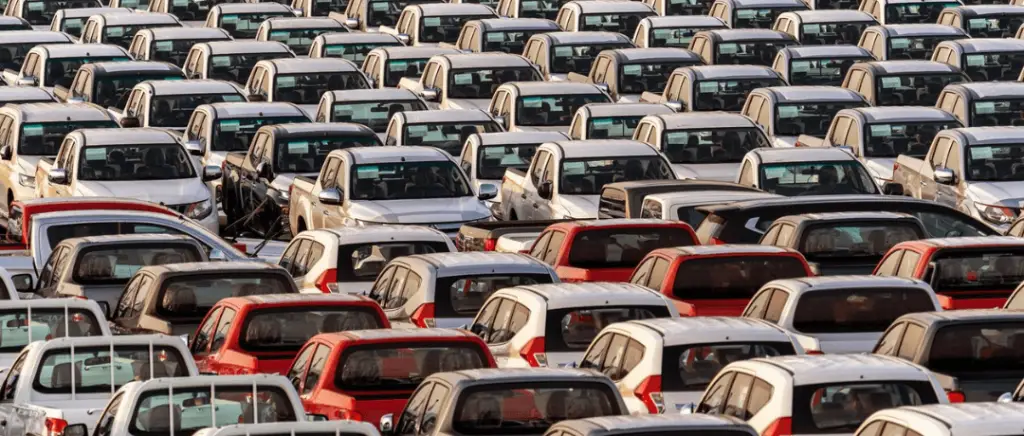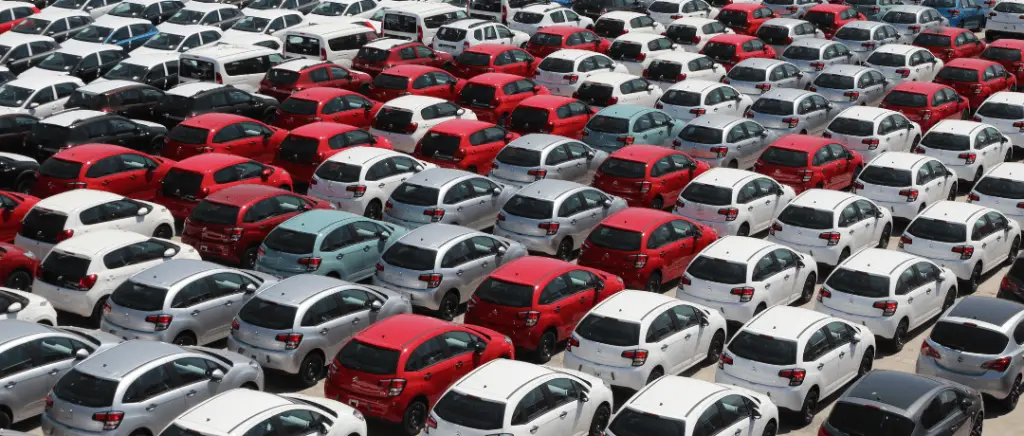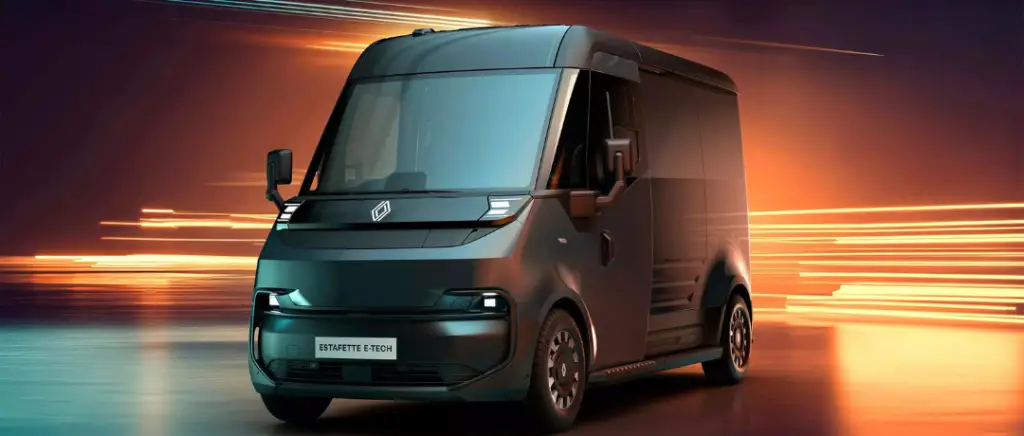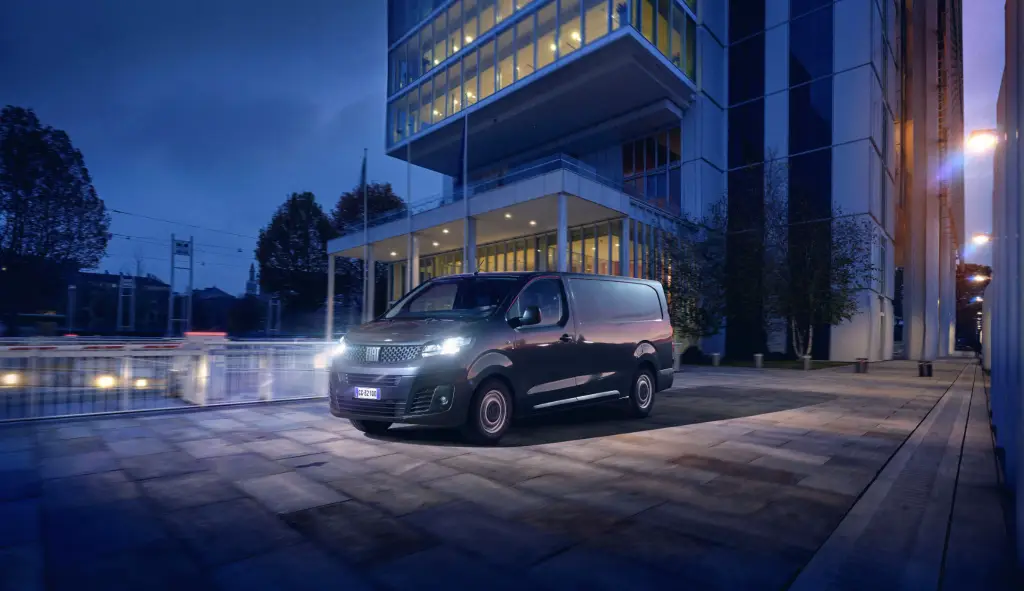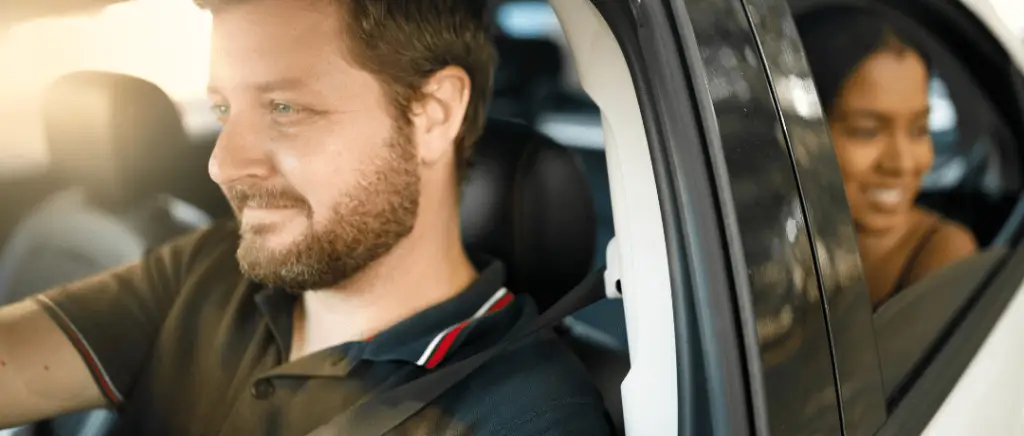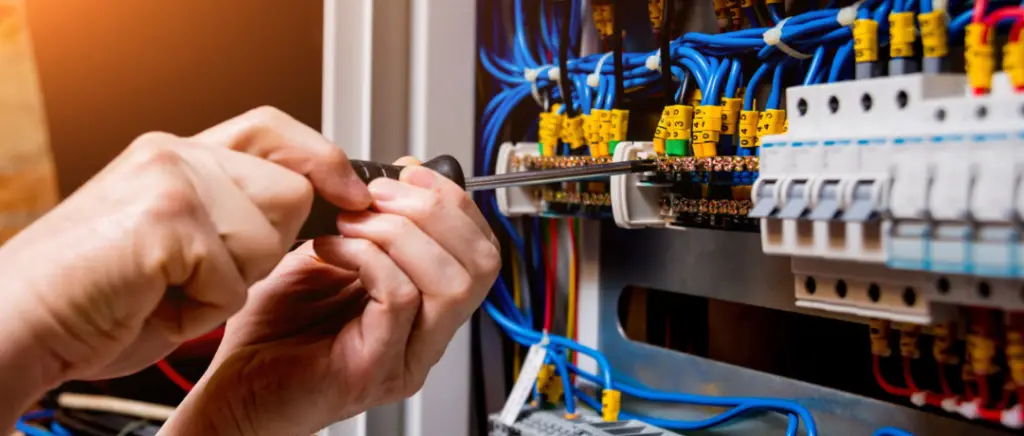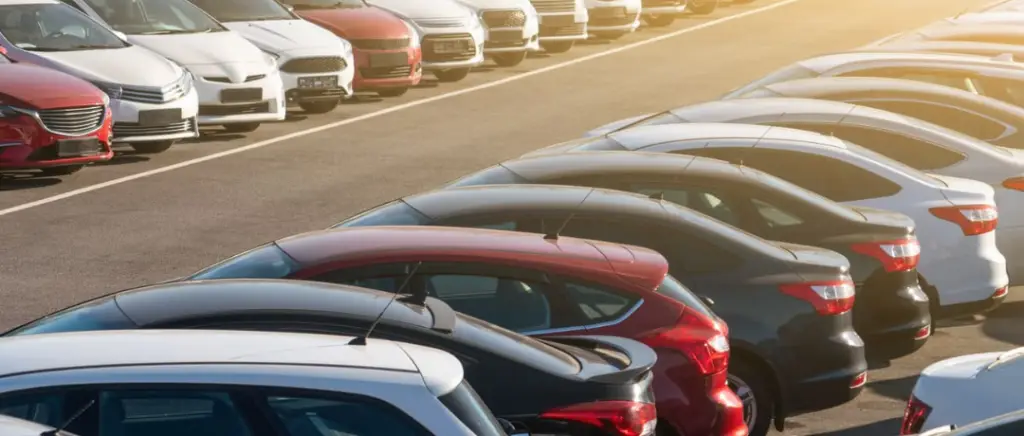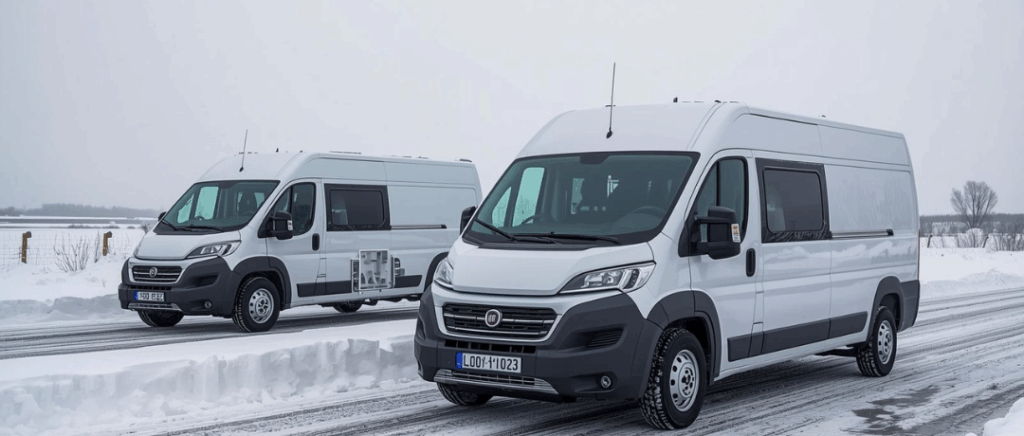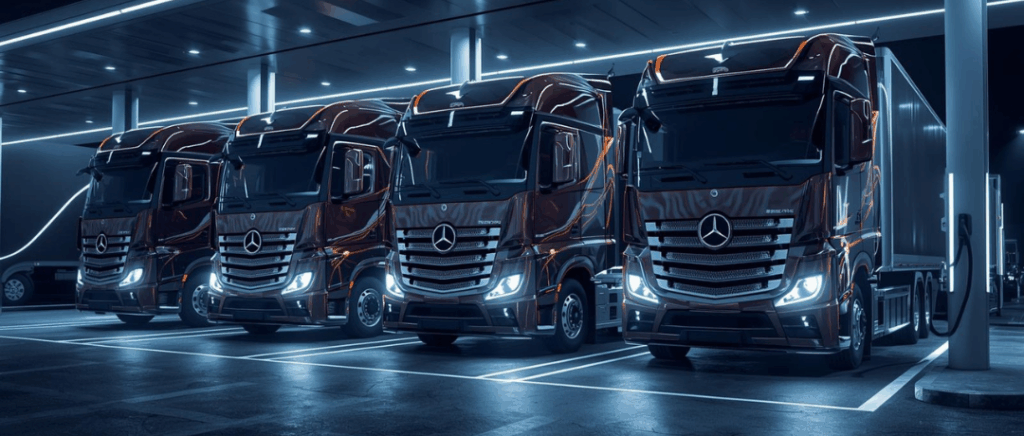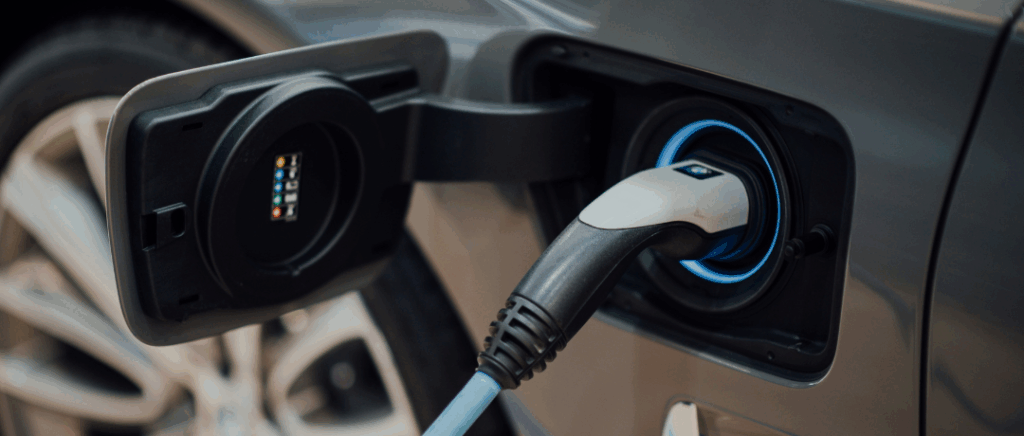The challenge of energy transition in the professional transport sector
Today's fleet and logistics managers are faced with a dual constraint: maintaining operational efficiency while drastically reducingcarbon footprint of their activities. It is in this context that Renault is positioning its new range of electric vans as a key solution.
As a result, the introduction of theE-Tech vanthe E-Tech Goelette and E-Tech traffic has come at just the right time in view of the changing regulatory framework.
As a reminder, one of the major regulatory changes accelerating this transition is the Loi d'Orientation des Mobilités (LOM), adopted in 2019. Its objective is clear: accelerate the decarbonisation of transport and encourage companies to renew their fleets with clean vehicles.
See also our article :
In practical terms, companies with more than 100 vehicles will have to include :
- 20% of low-emission vehicles by 2024,
- 40% at 2025,
- and up to 70% from here 2030.
In which case, companies may suffer sanctions following the new regulations and sanctions of the Joint Committee (CMP), ranging from 2 000 à 5 000 € per non-compliant vehicle, but also a exclusion from public contracts.
See also our article :
These new electric models from Renault not only make it possible to comply with these requirementsbut alsoanticipate their future reinforcement.
💡Did you know ? in 2023, 60 % of the 3,447 companies concerned did not comply with the LOM law!
In addition, theexpansion Low Emission Zones (EPZ) in 42 French conurbations from 1 January 2025 is making the use of combustion-powered vehicles increasingly restrictive for companies operating in urban areas. In this context, Renault's electric vans offer a sustainable solution, guaranteeing continued access to city centres for years to come.
See also our article :
The French manufacturer is not content to simply offer electric alternatives to its internal combustion models. The manufacturer has also completely redesigned its commercial vehicles in order to optimise their energy efficiency without compromising the performance expected by professionals. New on-board technologies, such as Brake Energy Recovery and Intelligent Driving Modes, extend the range of the car.autonomy and reduce operating costs.
See also our article :
Focus on the 3 new Renault electric vans
Estafette E-Tech: the return of an icon in a zero-emission version
In the world of commercial vehicles, some names still resonate with nostalgia. The Estafette, a true symbol of the 60s and 70sis making a comeback in an electric 100 % version.E-Tech van. Renault revisits this an emblematic model for meeting the modern challenges of urban and suburban transportThis gives fleet and logistics managers a solution tailored to the new demands of the market.
See also our article :
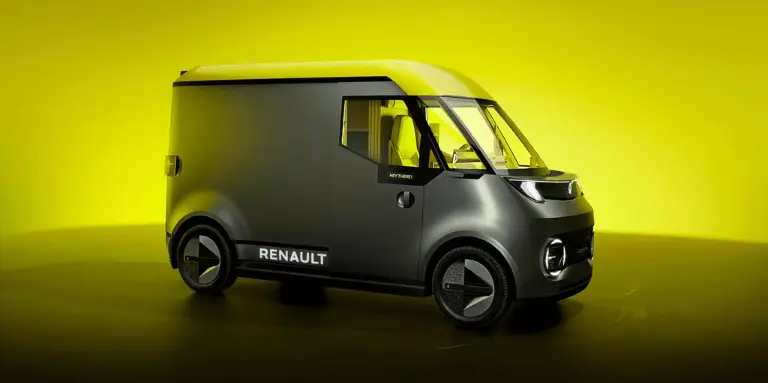
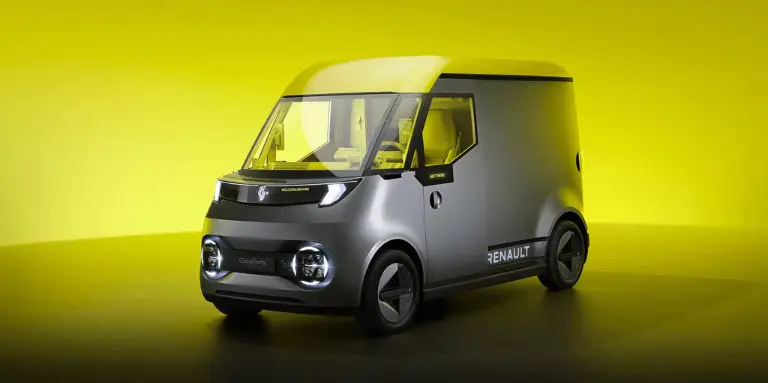
The Estafette E-Tech stands out thanks to its generous dimensions, with a length of 5.27 metresa width of 1.92 metres and a impressive height of 2.60 metres. These dimensions allow optimum load spacewith the possibility for a a person 1.90 metres tall to stand up inside the vehicleThis makes it easier for professionals to work.
The design of the Estafette E-Tech combines practical and modern. Sound triptych windscreen offers exceptional all-round visibilitywhile its distinctive lighting signature, incorporating a luminous strip, gives it an unmistakable look. strong visual identity. Practicality is ensured by :
- a side sliding door,
- from side and rear running boards for easy access,
- as well as bodywork protection to guarantee durability and aesthetics.
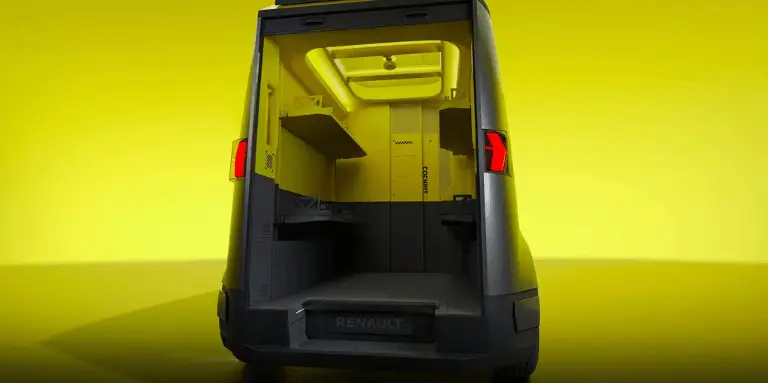
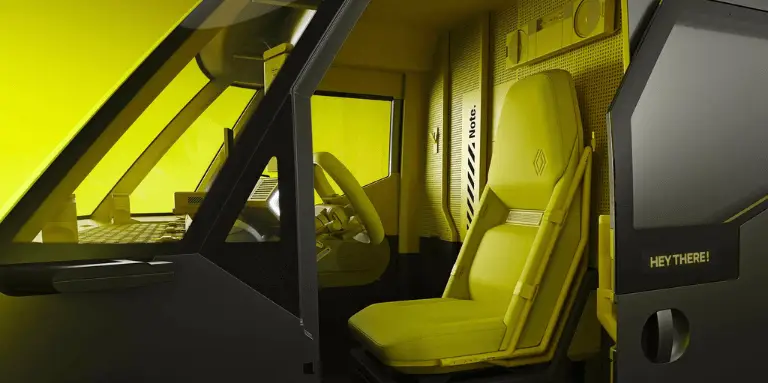
In terms of technology, the Estafette E-Tech, like the 2 other future Renault LCVs, is at the forefront with its SDV architecture (Software Defined Vehicle) from Ampere. This technology enables updates and improvements via an internet connectionThis ensures that the vehicle remains at the cutting edge of innovation throughout its lifetime. The integrated connected systems offer essential functionalities for optimum fleet management, such as :
- monitoring ofstate of charge,
- follow-up in real time position,
- and monitoring of vehicle performance.
Based on the FlexisThe Estafette E-Tech promises impressive electric performance. It should offer rapid recharging from 10 to 80% in just 18 minutes. Sound autonomy, estimated at up to 450 km according to the WLTP cycleIt is ideal for professional users who need to make long daily journeys without the need for frequent recharging.
In keeping with Renault's commitment to local production, the Estafette E-Tech will be made in Francein the Sandouville. Professionals and fleet managers will have to wait until 2026 to integrate this innovative vehicle into their operations, at which point it will be available on the market.
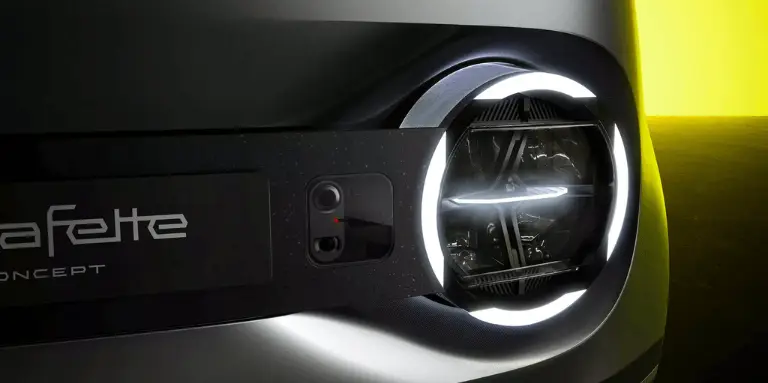
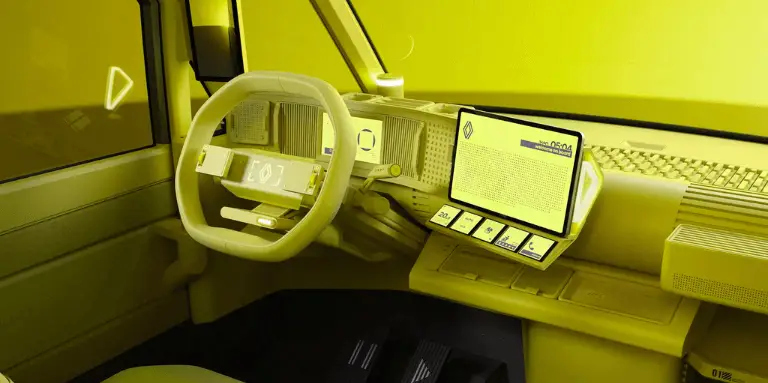
E-Tech golet: versatility and performance for urban deliveries
The Goelette E-Tech, the latest addition to Renault's electric LCV range, is positioned as an innovative solution to the challenges of modern urban logistics. This utility vehicle carries on the heritage of the original schoonera van that has travelled the roads of France for a decade from 1956 onwards. At the time, the Schooner had established itself as theone of the most popular commercial vehiclesThese are used by large corporate fleets and small independent contractors alike.
That said, Renault has developed the Goelette E-Tech by 3 different versions :
- box,
- skip,
- and chassis cab.
This diversity means that companies can choose the configuration best suited to their specific needs, whether :
- freight transport,
- specialised deliveries,
- or urban services.
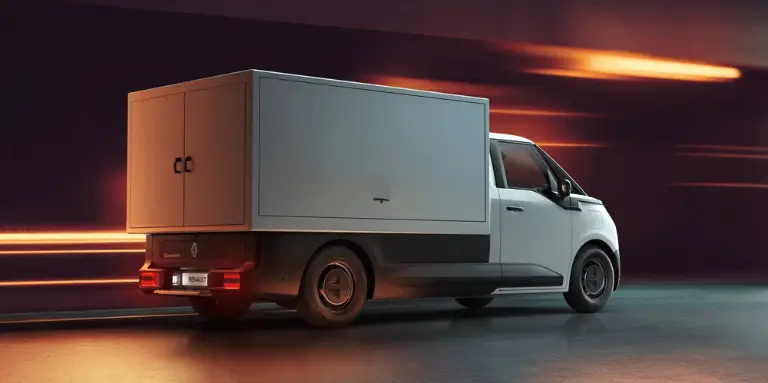
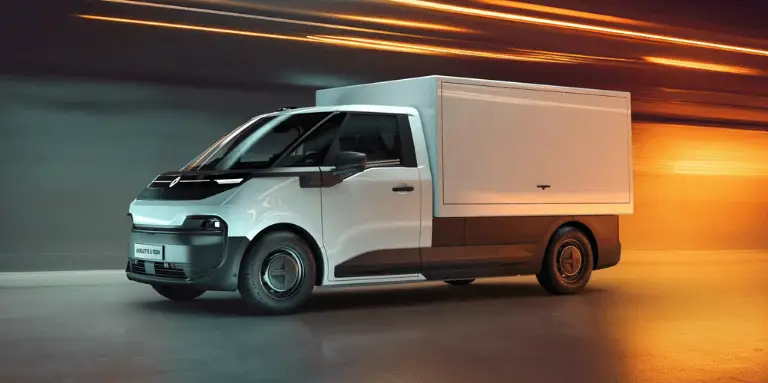
The flexibility offered by these different versions meets the variety of requirements encountered in the urban logistics sector.
The design of the Goelette E-Tech combines functionality and modern aesthetics. Its front block, unified down to the B footIt shares similarities with the Trafic E-Tech shown below, ensuring visual consistency within Renault's electric van range.
The rear section, meanwhile, has been designed for easy customisation, enabling companies to adapt the vehicle to their specific needs and brand image.
Although the precise technical details of the motorisationthe capacity of battery and theautonomy have not yet been disclosedAs a result, we can expect the Goelette E-Tech to offer optimised performance for urban journeys.
Its focus on fuel efficiency and manoeuvrability in urban environments should make it a valuable tool for last-mile deliveries and city services.
Production of the Goelette E-Tech will also be carried out in theRenault Sandouville plantThis is a clear sign of the manufacturer's commitment to local production and to maintaining jobs in the French automotive industry. Following the example of the Estafette and Trafic E-Tech, professionals interested in this new vehicle will have to wait until 2026.
Trafic E-Tech: the large commercial vehicle reinvented for the electric age
Trafic E-Tech follows in the footsteps of an iconic Renault vehicle, produced in over 2.5 million copies sold since its launch in 1980. This fourth generation electric vehicle continues the Trafic's heritage, while propelling it into the era of sustainable mobility.
The design of Trafic E-Tech combines functionality and modern aesthetics Its contemporary proportions and sleek, single-volume MPV silhouette give it an unmistakable look. dynamic pacewhile its reduced front overhang and its low weight Extended wheelbase optimise interior space without compromising manoeuvrability. Compared with the Estafette, this electric light commercial vehicle has a height under 1.90 mkeeping a easy access to underground car parksa valuable asset in an urban environment.
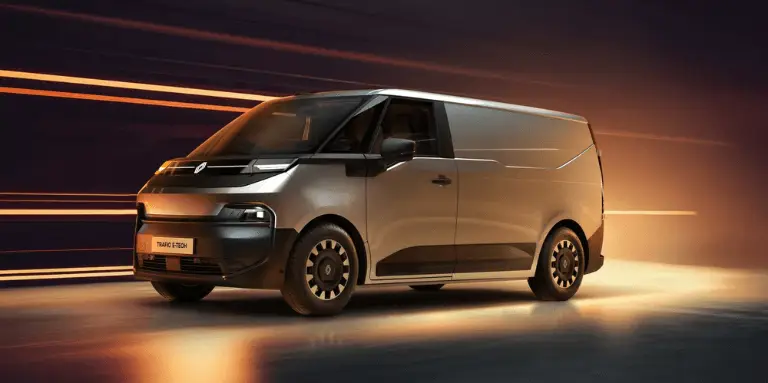
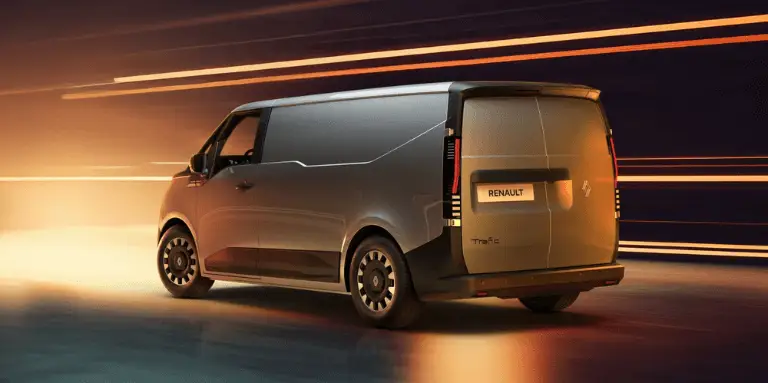
The rear of the vehicle features sculpted, asymmetrical hinged doors and a spoiler. aerodynamics. The rear lights, with their 3D relief designA touch of sophistication. But that's not all: sturdiness, essential for intensive professional use, is also a priority. highlighted by black grained protectors on the lower parts of the bodywork.
The electric van will also be manufactured at Sandouville.
Good to know The new electric Trafic will have a turning circle equivalent to that of their famous Clio.
Table summarising the technical specifications of the 3 new Renault electric vans
| Features | E-Tech van | E-Tech Goelette | E-Tech traffic |
|---|---|---|---|
| Length | 5,27 m | Not communicated | 5,08 m |
| Width | 1,92 m | Not communicated | 1,95 m |
| Height | 2,60 m | Not communicated | 1,99 m |
| Useful volume | Not communicated | Not communicated | Up to 8.9 m³ |
| Payload | Not communicated | Not communicated | Up to 1.1 tonnes |
| Range (WLTP) | Up to 450 km | Not communicated | Not communicated |
| Fast recharge | 10-80% in 18 min | Not communicated | Not communicated |
| Versions available | Not communicated | Box, Tipper, Chassis cab | Not communicated |
| Platform | Flexis | Not communicated | CMF-CD |
| Turning radius | Not communicated | Not communicated | Equivalent to a Clio |
| Place of production | Sandouville, France | Sandouville, France | Sandouville, France |
| Launch date | 2026 | 2026 | 2026 |
Comparison with combustion-powered vans: a winning choice
Although the initial investment for an electric van is generally higher, the total cost of ownership (TCO) is often more advantageous in the long term. Electric vehicles offer savings on fuel and maintenance costs.
See also our article :
However, it is essential for companies toincorporate future tax changes into their financial calculations. By 2025, thenon-deductible depreciation of passenger vehicles could have an impact on the profitability of your fleet.
See also our article :
Electricity is generally cheaper than fossil fuel. According to recent data the average cost of energy for an electric vehicle is estimated at between €2 and €10 per 100 kmagainst expenditure of up to 12,74 € for a petrol car.
💡Did you know ? Avere-France confirms that driving an electric vehicle, with a recharge mix typical of "normal" use, costs 68 % less than driving an electric vehicle. thermal vehicle.
See also our article :
On the other hand, it is important to remember that electric vehicles have fewer moving mechanical parts, reducing maintenance requirements. This mechanical simplification can lead to savings of 20 to 35% on maintenance costs compared with internal combustion vehicles.
Use the TCO simulator to calculate the total cost of ownership of your car and compare it with its internal combustion equivalent.
What's more, adopting these electric vans will significantly reduce your company's carbon footprint. Unlike combustion-powered vehicles, which emit average 120 to 200 g CO₂/kmAs a reminder, electric vans do not emit no direct emissions during use. This is particularly important in the face of increasingly stringent regulations, especially in the EPZs that are proliferating in major conurbations, as mentioned above.
To make the transition to electric cars easier, there are a number of financial aids available, such as thehelp Advenir for the installation of charging stations for professionals, reducing the initial cost of acquisition and infrastructure. In addition, companies can benefit from tax advantages such as exemption from company vehicle tax (TVS) for electric vehicles.
See also our article :
Testimonials from companies that have made the electric transition with Beev
Beeva specialist in helping people through this transition, has helped a number of many companies to successfully adopt electric vehicles. Here are a few examples of what we've learned. concrete benefits of this transition.
To find out more about other Beev customer testimonials, please visit our testimonials page.
Customer satisfaction and personalised support
Professionals who have placed their trust in Beev point to its quality of service and the personalised follow-up. Ebrar Kara, Managing Director of ALBIM, talks about the importance of effective support in choosing and financing an electric vehicle:
Our advisor was always positive, which was an encouragement for us. He found a solution every step of the way, took our needs into account and offered us a range of electric vehicles that were tailored to our needs, with advantageous financing.
In fact, the transition to electric power is not limited to the choice of vehicle, but also encompasses aspects such as funding, l'installation of recharging stations and the understanding new driving habits.
See also our article :
A diversified offering accessible to professionals
Beev stands out for its wide range of electric vehicles adapted to the needs of companies, whether small structures or large fleets. Vicky Nsenga, who was initially looking for a combustion-powered vehicle, was finally won over by the electric offer:
I saw that Beev had some interesting, accessible and appropriate offers for both private individuals and professionals.
This diversity means that companies can choose a vehicle that meets their requirements in terms of safety, comfort and efficiency.autonomyof performances and profitability. A major asset for fleet managers looking to optimise their fleets.
Monday to Friday
9am - 12.30pm - 2pm - 7pm
Smooth transition to electric vehicles
Switching to electric vehicles can raise a number of questions, particularly about the adaptability of vehicles to the day-to-day needs of professionals. With the help of Beev, this transition is smooth and seamless. Vicky, who has adopted a Tesla Model Yshares his feelings:
Thanks to my advisor, I found the ideal vehicle. Now I have a car that's so quiet it's much more pleasant to drive.
This type of return clearly illustrates the gains in comfort and in performance This is an essential criterion for companies whose teams spend long hours on the road.
Expertise and personalised advice
The electrification of a fleet requires a a good understanding of technical and economic issues. Beev supports its customers every step of the way, offering sound advice and rigorous monitoring. Ebrar Kara emphasises the importance of this support:
I would recommend Beev for their professionalism in monitoring our project from A to Z, the way we were advised and supported, and all this from a distance.
Thanks to this expertise, companies can take the right decisions at the right time. informed decisions and anticipating the challenges associated with the adoption of electric vehicles.
In other words, these testimonies show that the transition to electricwhen accompanied by the right people, is a a strategic and profitable choice for professionals.
You would like toto electric?
Beev offers multi-brand 100% electric vehicles at the best prices, as well as recharging solutions.
Electrification strategy and fleet audit: the essential needs analysis
An in-depth fleet audit is the the first step in your electrification strategy. It will enable you toaccurately assess your current and future needsensuring optimal transition to electric vehicles.
This audit is crucial to ensure that a clear view of your fleet and identify vehicles that can be replaced by electric models.
See also our article :
Mapping usage and journeys
Before investing in electric vans, it's vital to analyse the travel habits of your current fleet:
- Use the data from geolocation systems or logbooks to map typical routes.
- Identify average distances travelled daily and peaks of use.
- The majority of electric vans offer a range from 200 to 400 kmwhich is more than sufficient for many professional uses.
- Locate geographical areas covered and specific constraints (zones urban, rural, mountainous).
- Analyse the downtime and potential recharging points.
- A vehicle parked overnight on an operational site can be easily recharged using a dedicated charging point, optimising energy management.
Assessment of loads carried
Take a close look at the types and weight of loads usually carried :
- List the equipment and goods currently on board.
- Calculate the average weights and maximum transported.
- Identify specific needs in terms of interior design.
Studying costs and profitability
Switching to electric vehicles requires a detailed financial analysis in order to assess the impact on TCO. Draw up a detailed financial statement of your current fleet :
- Calculate the fuel costs per vehicle and for theentire fleet :
- List the maintenance expenses and repair over the last few years.
- Include costs related to taxes and insurance.
- Evaluate the purchase price or professional leasing new electric vehicles.
- Purchase prices may be higher than their thermal equivalents, but offers from LLD (Long-term leasing) ease the initial investment.
- Estimate the potential savings on fuel.
See also our article :
This analysis will serve as a basis for comparison to assess the potential profitability of Renault's electric vans.
Identify the need for recharging infrastructure
Electrifying a fleet means rethinking recharging logistics. Take stock of your current facilities:
- Check the electrical capacity of your sites for the installation of charging points.
- Identify potential spaces for the installation of recharging stations.
- Evaluate the need to install terminals on site.
- Depending on the size of the fleet, fast or slow charging points can be installed in company car parks.
- For professionals making long-distance journeys, consider theaccess to public recharging networks and infrastructure at partner sites.
- Please note that our reload card free of charge is now available!
- Consider installing connected charging stations for optimise costs and avoid peaks in electricity consumption.
Conclusion
Renault, with this new rangeprovides a practical response to the growing challenges of urban logistics and increasingly stringent regulatory requirements.
For fleet and logistics managers, these vehicles represent a unique opportunity to :
- d'optimise their operating costs,
- radically rethink the management of their vehicle fleets,
- and to position ourselves as responsible players in a fast-changing market.
The transition to electric vehicles, while complex, is proving to be a major success. a wise long-term investment. The savings on fuel and themaintenancecoupled with tax benefits and theimproved brand imageThese electric vans are a strategic choice for the future of your business.
